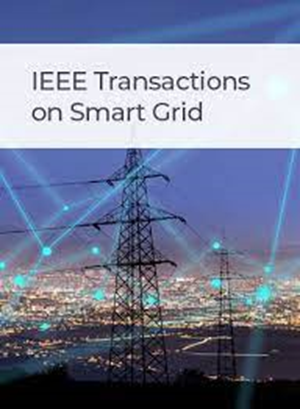Network Intrusion Detection for Modern Smart Grids Based on Adaptive Online Incremental Learning
IF 8.6
1区 工程技术
Q1 ENGINEERING, ELECTRICAL & ELECTRONIC
引用次数: 0
Abstract
New and evolving cyber attacks against smart grids are emerging. This necessitates that the network intrusion detection systems (IDSs) have online learning ability. However, most existing methods struggle to handle new and evolving attacks while retaining old attack knowledge, and many of them employ deep models requiring long update periods. Therefore, we propose an IDS based on adaptive online incremental learning (AdaOIL-IDS). 1) A class-correlated broad learning system (CC-BLS) is proposed for intrusion detection. A weighted CC-factor derived from intra- and inter-class correlations is introduced in CC-BLS to improve classification accuracy. CC-incremental learnings are designed to quickly add new inputs and additional nodes without retraining. The CC-factor for new inputs is adjusted based on correlations of new and old classes, which enables simultaneous adaptation to new attacks and new observations of old attacks while retaining more old knowledge. 2) An adaptive learning framework is proposed for online-offline combined learning of models. Online learning and offline retraining are adaptive switched based on the real-time loss to achieve efficient lifelong learning. Experiment results show that CC-BLS has better performance than selected state-of-the-art incremental broad and deep models, and the proposed adaptive learning framework behaviors better effectiveness and efficiency than selected existing frameworks.基于自适应在线增量学习的现代智能电网网络入侵检测
针对智能电网的新型和不断发展的网络攻击正在出现。这就要求网络入侵检测系统具有在线学习能力。然而,大多数现有方法在保留旧攻击知识的同时难以处理新的和不断发展的攻击,其中许多方法使用需要长更新周期的深度模型。因此,我们提出了一种基于自适应在线增量学习的IDS (AdaOIL-IDS)。1)提出一种类相关广义学习系统(CC-BLS)用于入侵检测。在CC-BLS中引入了基于类内和类间相关性的加权cc因子,以提高分类精度。cc增量学习旨在快速添加新的输入和额外的节点,而无需重新训练。新输入的cc因子根据新旧类别的相关性进行调整,这使得能够同时适应新的攻击和对旧攻击的新观察,同时保留更多的旧知识。2)提出了一种模型在线-离线联合学习的自适应学习框架。基于实时损失自适应切换在线学习和离线再训练,实现高效的终身学习。实验结果表明,CC-BLS的性能优于所选的最先进的增量式广义和深度模型,所提出的自适应学习框架的有效性和效率优于所选的现有框架。
本文章由计算机程序翻译,如有差异,请以英文原文为准。
求助全文
约1分钟内获得全文
求助全文
来源期刊

IEEE Transactions on Smart Grid
ENGINEERING, ELECTRICAL & ELECTRONIC-
CiteScore
22.10
自引率
9.40%
发文量
526
审稿时长
6 months
期刊介绍:
The IEEE Transactions on Smart Grid is a multidisciplinary journal that focuses on research and development in the field of smart grid technology. It covers various aspects of the smart grid, including energy networks, prosumers (consumers who also produce energy), electric transportation, distributed energy resources, and communications. The journal also addresses the integration of microgrids and active distribution networks with transmission systems. It publishes original research on smart grid theories and principles, including technologies and systems for demand response, Advance Metering Infrastructure, cyber-physical systems, multi-energy systems, transactive energy, data analytics, and electric vehicle integration. Additionally, the journal considers surveys of existing work on the smart grid that propose new perspectives on the history and future of intelligent and active grids.
 求助内容:
求助内容: 应助结果提醒方式:
应助结果提醒方式:


